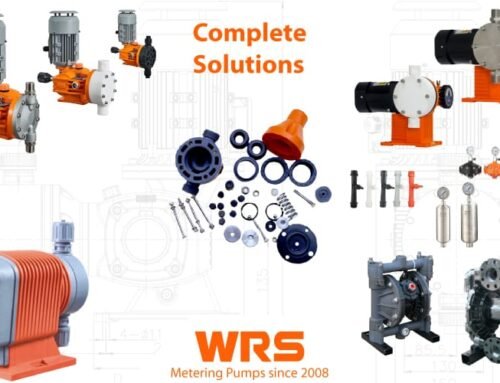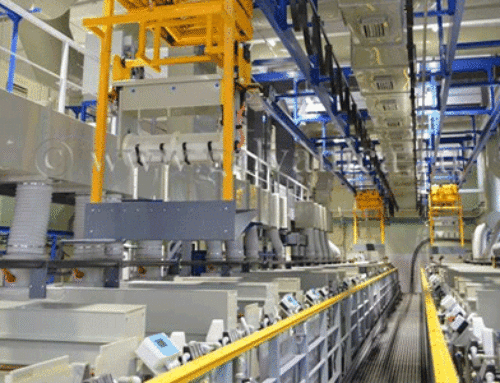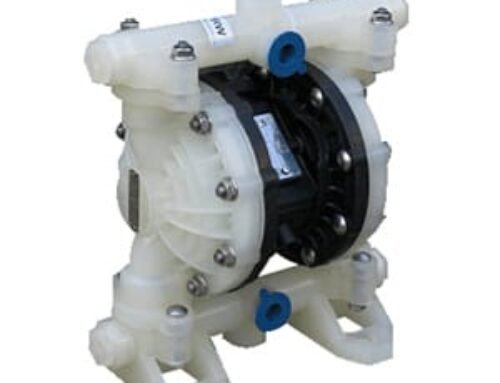In today’s industrial landscape, precision and efficiency are key factors that can make or break a business. Whether in water treatment, chemical processing, or pharmaceuticals, the need for accurate and reliable dosing systems is paramount. Enter the motor driven dosing pump a technology that has revolutionized the way fluids are handled and processed. In this article, we explore the numerous advantages of using motor driven dosing pumps and why they might be the perfect solution for your pumping needs.
A motor driven dosing pump is a type of pump specifically designed to deliver precise amounts of fluid. Unlike manual pumps, these automated systems ensure consistent flow rates and are highly adaptable to various industrial applications. They are powered by motors, which provide the necessary force to move fluids through the pump at controlled rates.
Key Advantages of Motor Driven Dosing Pumps
Precision and Accuracy
One of the most significant benefits of motor driven dosing pumps is their precision. These pumps can deliver exact amounts of chemicals or fluids, making them ideal for applications where accuracy is crucial. This precision helps in maintaining the quality and consistency of the end product, which is especially important in sectors like pharmaceuticals and food processing.
Versatility and Adaptability
Motor driven dosing pumps are incredibly versatile. They can handle a wide range of fluids, from viscous chemicals to dilute solutions. This adaptability makes them suitable for various industries, including water treatment, where they are used to add disinfectants, and in agriculture, where they deliver fertilizers and pesticides.
Energy Efficiency
Energy efficiency is a critical consideration in today’s environmentally conscious world. Motor driven dosing pumps are designed to minimize energy consumption without compromising performance. Their efficient operation not only reduces energy costs but also contributes to a company’s sustainability goals.
Robustness and Durability
Industrial environments can be harsh, with pumps often exposed to corrosive chemicals and extreme temperatures. Motor driven dosing pumps are built to withstand these conditions. They are constructed from durable materials that resist corrosion and wear, ensuring long-term reliability and minimal maintenance needs.
Cost-Effectiveness
While the initial investment in motor driven dosing pumps can be higher than in manual systems, the long-term savings are substantial. Their precise dosing reduces waste and optimizes chemical usage, leading to lower operational costs. Additionally, their durability means less frequent replacements and repairs, further reducing expenses.
Applications of Motor Driven Dosing Pumps
Water Treatment
In water treatment plants, maintaining the balance of chemicals is crucial for ensuring safe and clean water. Motor driven dosing pumps are used to inject precise amounts of chlorine, fluoride, and other chemicals into the water supply, ensuring compliance with health and safety regulations.
Chemical Processing
by Alex Plesovskich (https://unsplash.com/@aples)
In chemical industries, the accuracy of fluid handling directly impacts the quality of the final product. Motor driven dosing pumps facilitate the accurate dosing of reactants, catalysts, and other substances, playing a vital role in optimizing chemical reactions and processes.
Pharmaceutical Manufacturing
Pharmaceutical production requires stringent control over ingredient quantities. Motor driven dosing pumps ensure that active ingredients, solvents, and excipients are delivered in the exact amounts needed, maintaining product quality and efficacy.
Agriculture
In agriculture, motor driven dosing pumps are used for the controlled application of fertilizers, pesticides, and herbicides. This precision helps in maximizing crop yields while minimizing environmental impact.
Choosing the Right Motor Driven Dosing Pump
When selecting a motor driven dosing pump, several factors should be considered to ensure it meets your specific needs:
Flow Rate and Pressure Requirements
Determine the required flow rate and pressure for your application. Different pumps are designed to handle varying levels of flow and pressure, so it’s essential to choose one that matches your operational demands.
Chemical Compatibility
Ensure the pump materials are compatible with the chemicals being handled. Incompatible materials can lead to corrosion and pump failure, compromising both safety and efficiency.
Maintenance and Support
Consider the availability of maintenance services and technical support. Reliable after-sales service can make a significant difference in the longevity and performance of your dosing pump.
Budget and Total Cost of Ownership
While upfront costs are important, also consider the total cost of ownership, which includes maintenance, energy consumption, and potential downtime. A slightly more expensive pump with lower operational costs may offer better value in the long run.
Conclusion
Motor driven dosing pumps are an essential component in many industrial processes, offering precision, efficiency, and reliability. Their ability to deliver exact amounts of fluids makes them indispensable in sectors where accuracy is crucial. By investing in a motor driven dosing pump, businesses can improve their operational efficiency, reduce waste, and ultimately, enhance their bottom line. Whether you are in water treatment, chemical processing, pharmaceuticals, or agriculture, these pumps provide a robust solution to meet your fluid handling needs.








Leave A Comment